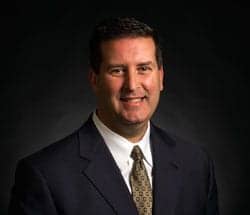In light of the Supreme Court ruling in the Bond v. United States case, Paralyzed Veterans of America is now calling for Senate action regarding the Convention on the Rights of Persons with Disabilities (CRPD) Treaty, according to a recent news release issued by the organization.
In the release, Bill Lawson, Paralyzed Veteran’s national president, states “Paralyzed Veterans has long championed the rights and freedoms of people with disabilities, particularly those men and women who honorably served this nation. Ratification of this treaty would help expand accessibility across the world and maximize independence for millions of people with disabilities. We urge the Senate to move forward immediately with ratification of the CRPD.”
The Bond v. United States case involved a challenge to a federal status implementing the Chemical Weapons Convention, which was enacted following the negotiation of the CRPD treaty.
A statement released by the Washington, DC-based Human Rights First explains that the Bond v. United States case called into question the scope of treaty power when an individual had been prosecuted under a federal law for violating the Chemical Weapons Convention, reportedly cited by some lawmakers as a reason to delay US entry into new treaties including the CRPD. The Human Rights First statement adds that the Supreme Court decided that the federal law used in the Bond case was intended for situations of war and terrorism, and did not apply to “garden-variety criminal behavior that is properly the exclusive subject of state law.”
In turn, the unanimous judgment in the case, Paralyzed Veterans says, reflects the feelings of many disability advocates and legal scholars who believe the Bond case is irrelevant to the process of ratifying the CRPD Treaty. The CRPD treaty is intended to promote the human rights of individuals with disabilities.
Lawson emphasizes the importance of ratifying the CRPD, which he says would “reaffirm the United States’ commitment to international disability rights, and allow the nation to lead the effort to ensure that any person with a disability is able to live, work, learn, and travel around the world without barriers to access.”
Source(s): Paralyzed Veterans of American, Human Rights First





